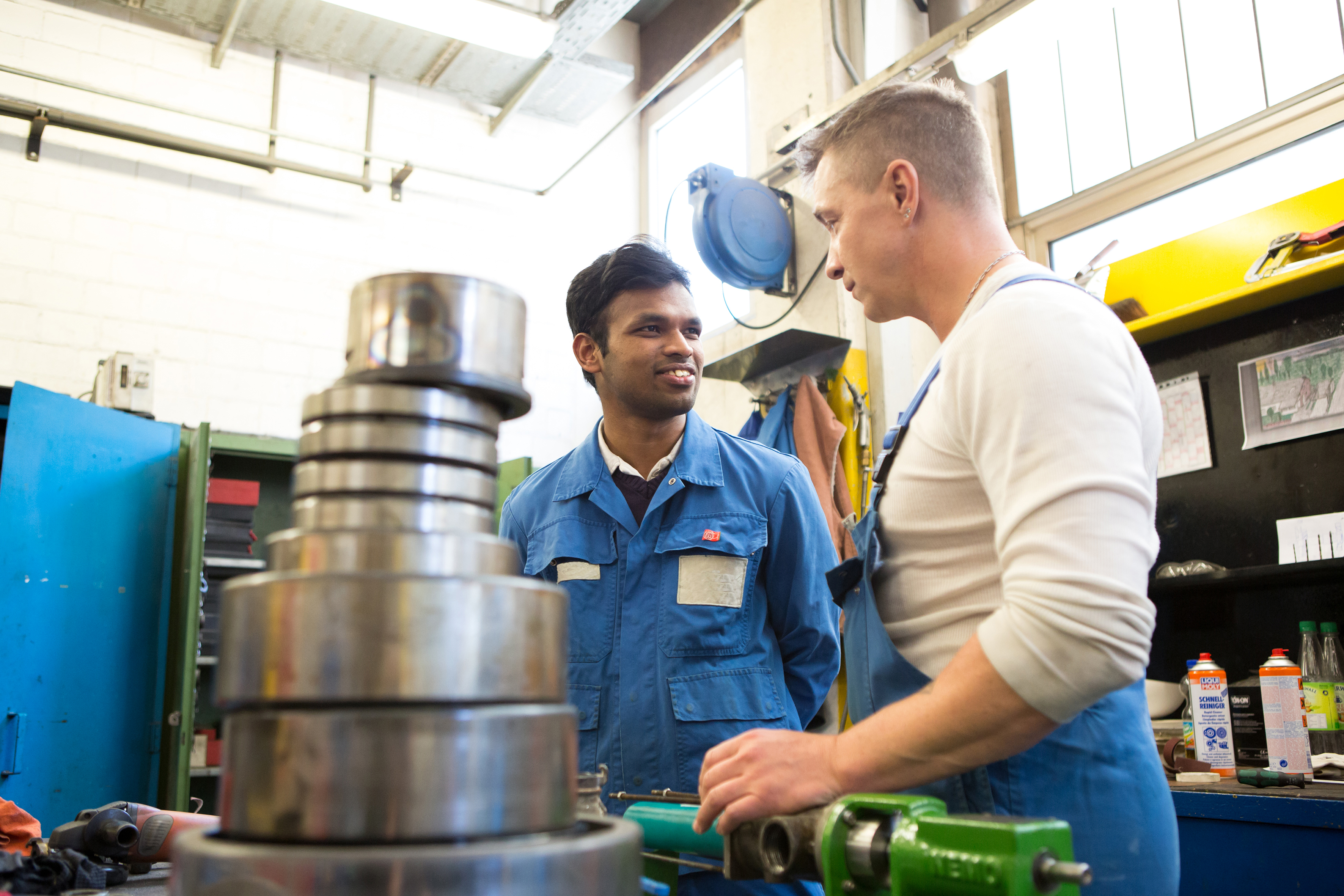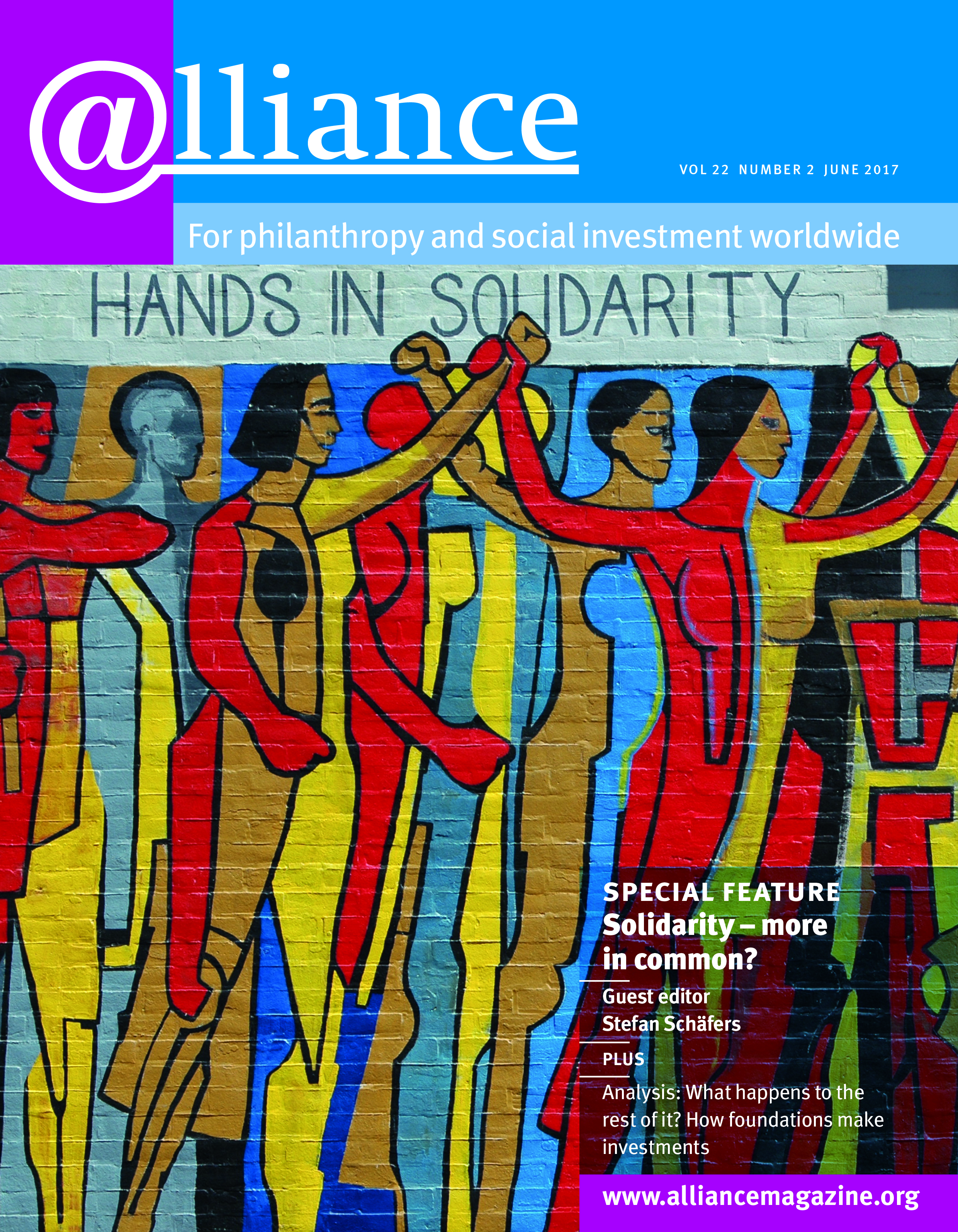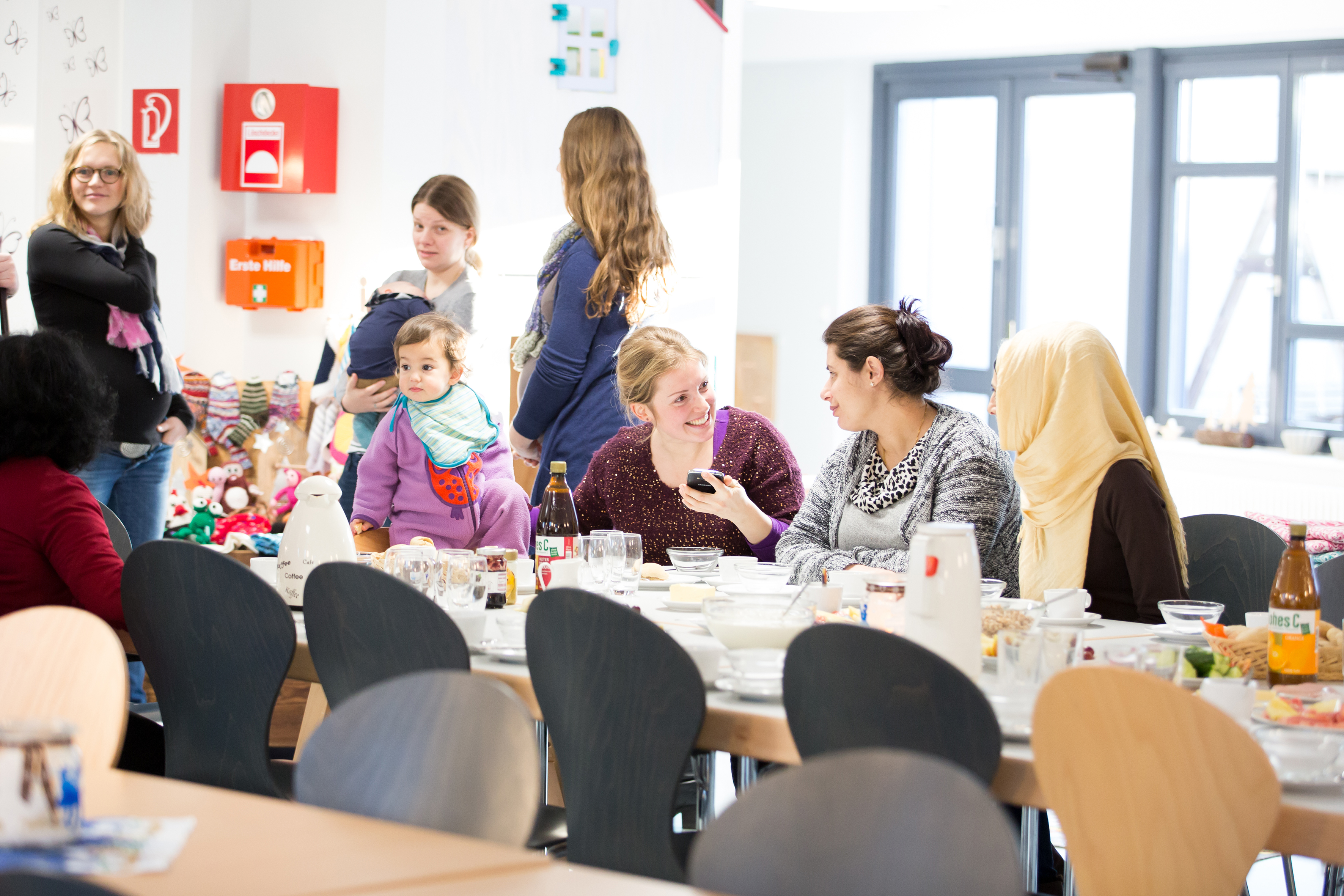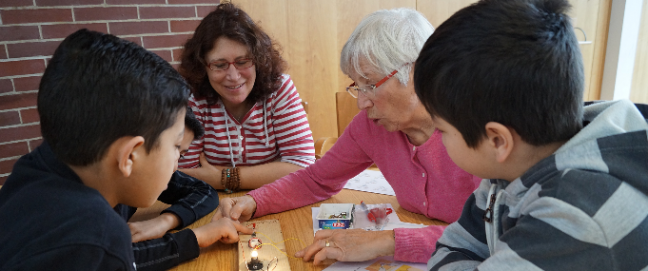Summer 2015: 200,000…800,000…1,000,000… official estimates of the number of displaced people arriving in Germany continually lagged behind the facts. Germans worried about how their country could deal with such an influx of people. Yet at the same time, it was becoming impossible to ignore the reports about the dangers of the journey across the Mediterranean, the ruthlessness of the people smugglers and the rising number of dead. The German people wavered between helplessness, concern and the desire to show solidarity. In August 2015, Chancellor Angela Merkel coined the phrase that pointed the way ahead for many citizens as the guiding principle of an outstanding welcoming culture: ‘Wir schaffen das!’ – ‘We can do it!’
This decision enabled foundations to initiate programmes related to refugees. Furthermore, in an uncertain situation, many foundations felt that the need for immediate action could better be met by cooperation and co-financing, thus expanding their regular modes of operation.
Locally, community foundations got involved, sharing know-how and combining funds from local and national sources.
At the European level, the Fund for Unaccompanied Underage Refugees, a transnational consortium of foundations, was formed under the EPIM umbrella.
Spontaneous willingness to help grew into stable mentoring relationships, actions became programmes, initiatives became permanent registered associations.
From the beginning of 2016, the focus of refugees and volunteers turned from immediate aid to long-term integration: legal advice, housing, education, employment and meeting new neighbours.

Locally and nationally, around 80,000 civil society organizations are currently working for and with refugees in Germany. Photo credit: Valeska Achenbach/Bertelsmann Stiftung.
Spontaneous willingness to help grew into stable mentoring relationships, actions became programmes, initiatives became permanent registered associations.
In many places the improvised juxtaposition of state and civic action became an effective, complementary whole, with both civil society and the authorities beginning to professionalize their approach: the initial provision for refugees was developing into a deeper participation that utilizes the skills and strengths of the refugees themselves.
What is the situation now? There is still cause for concern after the assaults on women in Cologne on New Year’s Eve 2015 and the attack in Berlin in December 2016, and it is not a matter of course that German society will remain as welcoming as it has been during the last two years.
Refugee aid and the long-term commitment of volunteers seem to work particularly well where the municipality functions as an enabling and coordinating partner.
However, a recent survey by the Bertelsmann Stiftung shows that Germany has passed the ‘stress test’. Nationalist and xenophobic forces reflect only a very limited cross-section of German opinion. Locally and nationally, around 80,000 civil society organizations are currently working for and with refugees. Most of them only entered this field after 2014.
Governmental structures have also been improved and processes made faster. Around 55 per cent of the organizations active in refugee aid report that there are no coordination problems with municipal authorities. Refugee aid and the long-term commitment of volunteers seem to work particularly well where the municipality functions as an enabling and coordinating partner.
The lives of many refugees in Germany are still hard and there is much to be done. Foundations, charities and public authorities should keep up their mutual efforts to help create an environment for successful integration; to prevent rivalry between different disadvantaged groups; and to strengthen charities working for social justice, education and employment.
Each of these is a complex and permanent challenge, but the country has learned something important: respect for the power of civil society and the achievements of volunteers, and a deep appreciation for social solidarity.
Bettina Windau is director, Civil Society Programme, Bertelsmann Stiftung. Email bettina.windau@bertelsmann-stiftung.de








Comments (0)